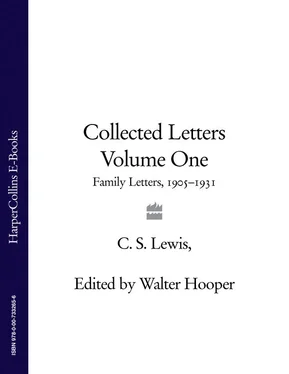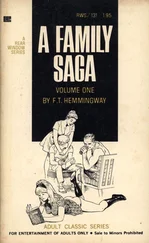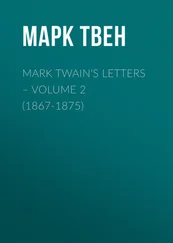50Revelation 4:4-10.
51 Roots of the Mountains, op. cit, vol. I, ch. 3, pp. 24-5: ‘Therein are Kobbolds, and Wights that love not men, things unto whom the grief of men is as the sound of the fiddle-bow unto us. And there abide the ghosts of those that may not rest; and there wander the dwarfs and the mountain-dwellers, the dealers in marvels, the givers of gifts that destroy Houses.’
52The painter and sculptor George Frederic Watts (1817-1904) who lived for some years at ‘Limneslease’ near Compton in Surrey
53Presumably a reference to the notorious Victorian children’s lesson book Little Arthur’s England (1835) by Lady Calcott.
54Several generations of the Greeves family had been members of the Society of Friends (Quakers). However, Arthur Greeves’s grandparents had been converts to the Plymouth Brethren and it was in this denomination that Arthur had been brought up. The family retained its connection to the Friends.
55John Milton, Sonnet 16, ‘When I consider how my light is spent’ (1673): ‘They also serve who only stand and wait.’
56The letters columns of the papers had been filled with talk of the pros and cons of conscription. However, the Military Service Act, which brought in conscription, did not come into being until 10 February 1916.
57 Roots of the Mountains, op cit, vol. I, ch. 1, p. 13.
58 Laxdaela Saga, translated by M.A.C. Press, Temple Classics (1899). This 13th century Icelandic saga is the tragic story of several generations of an Iceland family, and in particular of Gudrun who causes the death of a man she loves but fails to marry.
59Jane Austen, Mansfield Park (1814).
60He had in mind Franz Liszt’s Hungarian Rhapsody No. 1, first performed in 1851.
61Charles Gordon Ewart (1885-1936) was the second son of Sir William Quartus Ewart. See The Ewart Familyin the Biographical Appendix.
62He means her character was like Wagner’s Die Walküre.
63Gundreda Ewart (1888-1975) was one of the daughters of Sir William Quartus Ewart. See The Ewart Familyin the Biographical Appendix.
64From Edvard Grieg’s Lyriske Smaastykker (1867).
65i.e. ‘A British Roman Song’.
66He is referring to Plato’s Phaedrus, 278a
67 The Whip, a play by Cecil Raleigh and Henry Hamilton, had been performed for the first time in 1909 and was having a revival.
68Willie Carr, Albert’s managing clerk, apparently after being rejected for the army on account of his teeth in the earlier days of the war, had now been accepted.
69William Shakespeare, Othello, The Moor of Venice (1622).
70These are the central characters in William Shakespeare’s plays King Lear (1608), Macbeth (1623), Hamlet (1603) and Othello.
71This was Jack’s maternal grandmother, Mrs Mary Hamilton, then living at Archburn, Knock. See The Hamilton Familyin the Biographical Appendix.
72 The Open Road, compiled by E.V. Lucas (1905).
73Maurice Hewlett, Pan and the Young Shepherd (1898).
74Maurice Hewlett, Lore of Proserpine (1913); Forest Lovers (1898).
75Charlotte Brontë, The Professor (1857).
76Genesis 3:19.
77Demosthenes (383-322 BC) was a great Athenian orator and statesman, and Cicero (106-43 BC) a great Roman orator and statesman. Neither, however, attracted Lewis, who writing years later in SBJ IX said: ‘Kirk did not, of course, make me read nothing but Homer. The Two Great Bores (Demosthenes and Cicero) could not be avoided.’
78Henry Seton Merriman, The Sowers (1896).
79George Eliot (1819-80), the English novelist whose real name was Mary Ann Evans.
80Samuel Taylor Coleridge, Christabel and Other Poems (1816); The Rime of the Ancient Mariner (1798).
81i.e. Lewis’s cousin, Mrs George Harding (née Charlotte Hope Ewart, 1882-1934).
82Lewis loved all Richard Wagner’s music, especially the Ring of the Nibelung cycle comprising Das Rheingold (The Rhinegold) first performed in 1869; Die Walküre (The Valkyrie), first performed in 1870; Siegfried and Götterdämmerung (The Dusk of the Gods), both performed for the first time in 1876.
83 Parsifal, an opera by Wagner, first performed in 1882.
84William Jaffé, a friend of Albert Lewis, was the son of Sir Otto Jaffé who was twice Lord Mayor of Belfast.
85Chaliapin was Fyodor Ivanovich Shalyalpin (1873-1938) who was generally considered the greatest singer of his day
86 Robert le Diable, an opera by Giacomo Meyerbeer, was first performed in 1831.
87‘“Boldness and ever more boldness” from G. J. Danton in Le Moniteur (4 September 1792).’
88The fellow pupil was Terence Forde (1899-?), the ward of Mrs Howard Ferguson. He had been brought up in Manchester, and after moving to Ireland he attended Campbell College, from which school he was sent to Mr Kirkpatrick.
89This is Jack’s cousin, Joseph ‘Joey’ Tegart Lewis. See note 21 to letter of 27 November 1908. Joey entered Campbell College, Belfast, in 1906, and was still a pupil there. See The Lewis Familyin the Biographical Appendix.
90i.e. Terence Forde.
91i.e. the opera by Charles Gounod.
92The comparison is between Louis and Shirley, characters in Charlotte Brontë’s Shirley, and Gordon Ewart and Lily Greeves who were to be married on 14 December 1915.
93Edmund Spenser, The Faerie Queene, 2 vols., Everyman’s Library [1910].
94Swinburne, Poems and Ballads, op. cit. ‘At Parting’ begins: ‘For a day and a night Love sang to us, played with us.’
95The lines from ‘At a Month’s End’ are: ‘Who snares and tames with fear and danger/ A bright beast of a fiery kin.’
96Dr Lawrence Walker of Belfast was a teacher of music.
97Eugène Ysaÿe (1858-1931), the Belgian violinist and conductor whose style of playing was considered unconventional and highly original.
98 Madame Butterfly, an opera by Giacomo Puccini, was first performed in 1904.
99Thucydides (c. 460-c. 400 BC) wrote a history of the Peloponnesian War which is one of the greatest historical works of all time. One of its most noteworthy passages is Pericles’s Funeral Oration over the Athenians who had died in the war.
100Sappho (b. c. mid-7th cent. BC), a poetess born in Lesbos. Only 12 of her poems have survived.
101Gaius Valerius Catullus (c. 84-c. 54 BC), one of the most versatile of Roman poets, who wrote love poems, elegies and satirical epigrams with equal success.
102Jack London, The Jacket (1915).
103This is from the essay by Francis Bacon referred to in the letter of 13 May 1915. Bacon was the Baron of Verulam.
104See The Times (21 October 1915), p. 4 and (22 October 1915), p. 5.
105‘Though the mills of God grind slowly, yet they grind exceedingly small.’ Friedrich von Logau, Sinnegedichte (1654), ‘Desz Dritten Tausend, Andres Hundert’ no. 24 (translated by Henry Wadsworth Longfellow).
106William H.F. ‘Bill’ Patterson, the son of William Hugh Patterson (1835-1918) who wrote A Glossary of Words in Use in the Counties of Antrim and Down (1880), was addicted to puns and was a recognized Strandtown wit. He published a volume of verse under the initials W.H.F., Songs of a Port (Belfast, 1920).
107Included in The Times of 3 November 1915 was The Times Recruiting Supplement, on page 16 of which was a poem Rudyard Kipling composed for the occasion. The first verse of the poem, ‘For All We Have and Are’, is as follows:
Читать дальше












